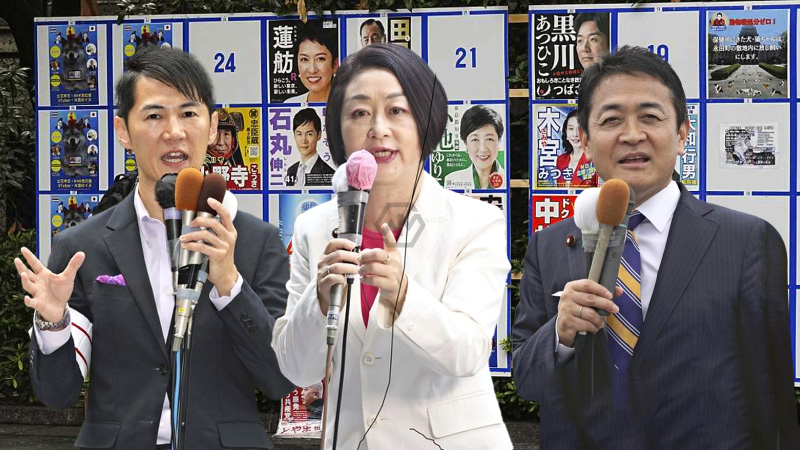- Campaigning opens for the June 22 Tokyo Metropolitan Assembly election with 291 candidates—the most in over 30 years.
- Rising living costs and political funding scandals are central election issues.
- The vote is seen as a key indicator ahead of Japan’s Upper House election in July.
The Tokyo Metropolitan Assembly election campaign kicked off on June 13, drawing unprecedented participation with 291 candidates vying for 127 seats across 42 districts.
Parties are aggressively leveraging social media to attract younger and undecided voters ahead of the June 22 vote. The race is particularly significant because it precedes the national Upper House election in July, making it a bellwether for Prime Minister Shigeru Ishiba’s administration.
Tokyo Assembly Race Heats Up Amid Inflation and LDP Scandal
As campaigning begins for Tokyo’s assembly election, the city sees its largest number of candidates in decades. With 291 candidates competing for 127 seats, the race underscores intense political engagement at a time when public dissatisfaction with rising prices and political mismanagement is mounting.
The Liberal Democratic Party enters the race amid scandal, having withheld endorsements for six candidates linked to a recent funds controversy. Prime Minister Ishiba, whose Cabinet approval ratings hover below 30%, is under pressure to demonstrate the LDP’s viability both in Tokyo and nationally.
Governor Yuriko Koike’s affiliated party, Tomin First no Kai, aims to regain its previous dominance by fielding 37 candidates. Koike’s influence remains strong, with party leaders emphasizing continuity and partnership to position Tokyo as a global leader. Meanwhile, Komeito, the LDP’s coalition partner, also hopes to maintain its leverage.
New challenger Saisei no Michi, led by ex-mayor Shinji Ishimaru, is attracting attention for its digital campaign savvy and populist tone. Ishimaru’s surprise second-place finish in the 2024 gubernatorial election positions the party as a disruptor, especially among younger voters seeking alternatives to traditional power blocs.
With Tokyo’s political future hanging in the balance, the outcome of the assembly vote could set the tone for Japan’s broader political trajectory in a year of national significance.
“The party headquarters will do its utmost, in cooperation with the metropolitan chapter, to ensure that all the candidates are elected.”
— Prime Minister Shigeru Ishiba



